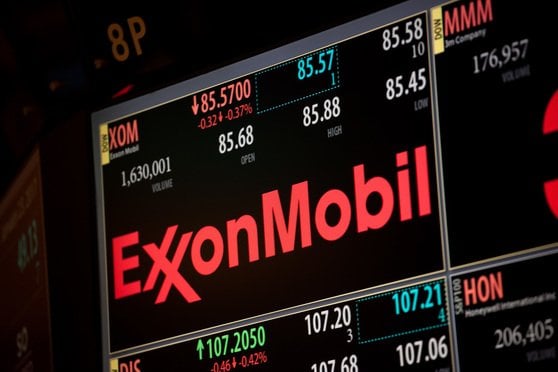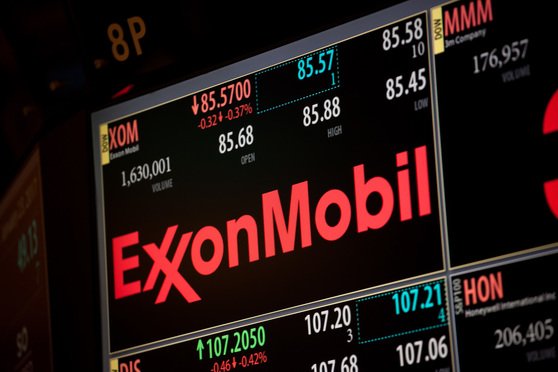
 Photographer: Michael Nagle/Bloomberg
Photographer: Michael Nagle/BloombergAs sustainable and environmental, social and governance (ESG) investing has come under increasing criticism, an emerging category of investments that offers an alternative has gained some traction. Anti-ESG funds have experienced growing attention during the past few quarters, after years of muted demand and losses prior to the second half of last year, according to an analysis by Morningstar.
Such funds reached $2 billion in assets during the first quarter of this year, with flows into anti-ESG funds peaking at $376 million during the third quarter of 2022, the firm said. Strive Asset Management’s first fund – Strive U.S. Energy ETF – accounted for more than 80% of anti-ESG inflows, attracting nearly $100 million during its first week and more than $300 million during its first month.
The full report, Anti-ESG Funds Make Noise. Here’s What They Look Like, revealed some surprises among anti-ESG funds, including that while they tend to have a higher level of exposure to controversial industries such as weapons and fossil fuels, some also have strong exposure to positive environmental impact, including climate action, healthy ecosystems, resource security and human development.
However, whether anti-ESG funds will have staying power remains to be seen. Morningstar noted that Strive’s subsequent fund launches attracted only about $5.5 million each month since inception and that after just one year on the market, anti-ESG fund Capital Constrained ESG Orphans ETF recently filed with the Securities and Exchange Commission to liquidate.
Morningstar identified 26 funds in its universe that can be considered anti-ESG and grouped them into five categories based on prospectus language and marketing materials. It characterized the funds as a ‘young and disparate bunch,’ with most having launched within the past year. Almost all of the funds in its anti-ESG sample are equity funds, and most of those are concentrated in domestic large-cap stocks. With the exception of one open-end offering — USA Mutuals Vice — all anti-ESG funds are exchange-traded funds (ETFs).
- Anti-ESG funds use ESG data to build portfolios by tilting toward companies that management believes are unduly penalized by ESG ratings providers. An example of this type of fund is the Constrained Capital ESG Orphans ETF. Top holdings include ExxonMobil, tobacco firm Philip Morris and defense contractor Raytheon Technologies. Six stocks in this group carry severe to high levels of ESG risk, with ExxonMobil getting the riskiest rating. The higher levels of risk in these names can be traced to the high carbon emissions within each company’s operations and/or greenhouse gas emissions of products and services while in use by consumers.
- Political funds commonly refer to ESG investing as part of a “woke, liberal agenda.” These funds invest in companies believed to be supportive of conservative policies and geared toward Republican voters and principles. One such fund is the American Conservative Values ETF ACVF, which avoids companies that are perceived as hostile to conservative values.
- Renouncer funds are those that previously claimed to adhere to ESG investing principles but subsequently removed references to ESG principles from fund names and documents for fear of being associated with the ESG movement. Within Morninstar’s sample, renouncer funds are associated with Inspire Investing, whose CEO publicly repudiated ESG investing in August 2022, saying ESG had become weaponized politically. However, Morningstar noted Inspire Investing’s investments still focus on environmental issues such as air quality, greenhouse gas emissions and ecological impacts. When it comes to security selection, however, the funds focus on helping faith-based investors match their portfolios to biblical principles. Some of Inspire funds’ common holdings include Builders FirstSource, a manufacturer and supplier of building materials; Watsco, a distributor of air conditioning and refrigeration equipment; and Chemed, which provides hospice and palliative care services for the terminally ill.
- Vice funds invest in companies traditionally excluded by socially responsible or ethical funds. These include “sin stocks,” which tend to be concentrated in alcohol, tobacco, weapons and gambling. Vice funds have the longest track record within Morningstar’s sample, dating back more than 20 years in the case of USA Mutuals Vice VICEX. As the ESG-focused investor base has become more secular over time, avoiding sin stocks is no longer such a key tenet of the space, but vice funds remain a key approach for anti-ESG investors, said Morningstar. Boyd Gaming, Las Vegas Sands and Molson Coors Beverage Company are some of the most commonly held stocks within vice funds.
- Voter funds are traditional passive funds with voting policies in opposition to ESG principles, exemplified by the Strive ETF lineup. These funds track traditional broad market indexes, and their prospectus filings include no reference to ESG principles, for or against, Morningstar said. The key differentiating factor from other passive funds is their proxy-voting policies, which state that the firm will generally oppose environmentally or socially motivated shareholder proposals. Voter funds share many characteristics with political funds. The most commonly held stocks in voter funds are large caps and include ExxonMobil, Chevron, Broadcom, Nvidia, Alphabet and Apple. Notably, some of the commonly held names in Strive’s funds have high levels of exposure to climate action impact. For example, Apple derives a large portion of its revenue from manufacturing energy-efficient consumer electronics and appliances, and roughly half of Nvidia’s revenue comes from developing energy-efficient graphics cards, said Morningstar.
Kristen Beckman is a freelance writer based in Colorado. She previously was a writer and editor for ALM’s Retirement Advisor magazine and LifeHealthPro online channel.






